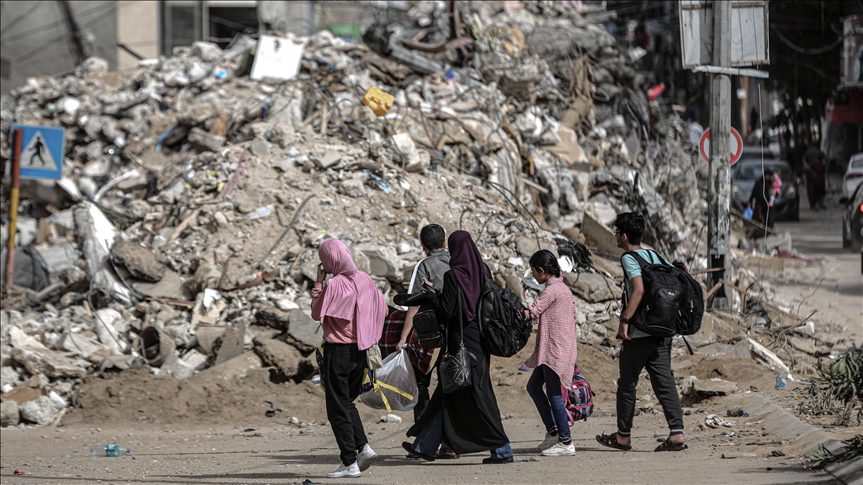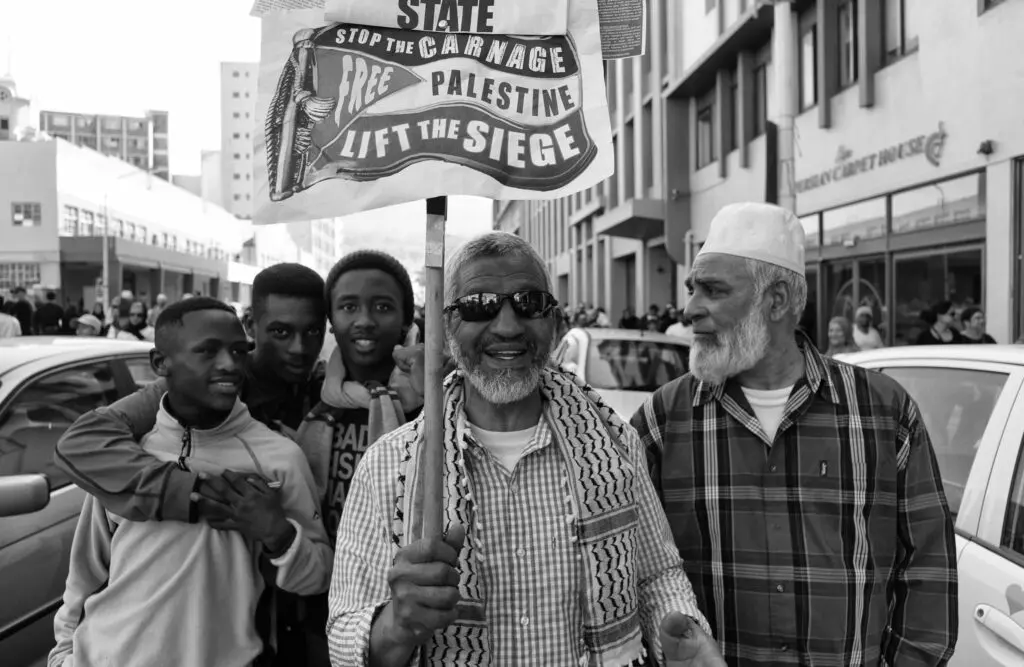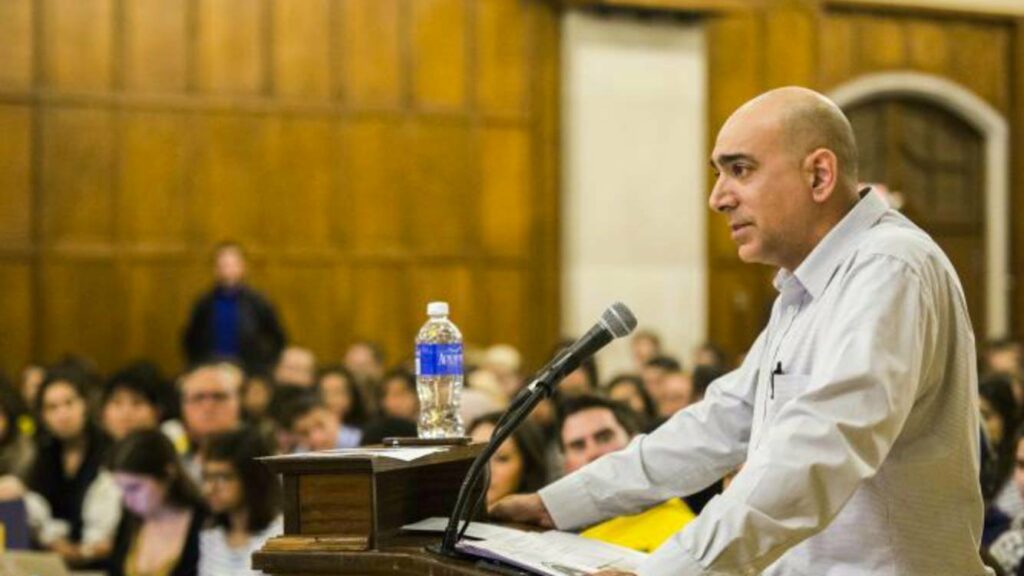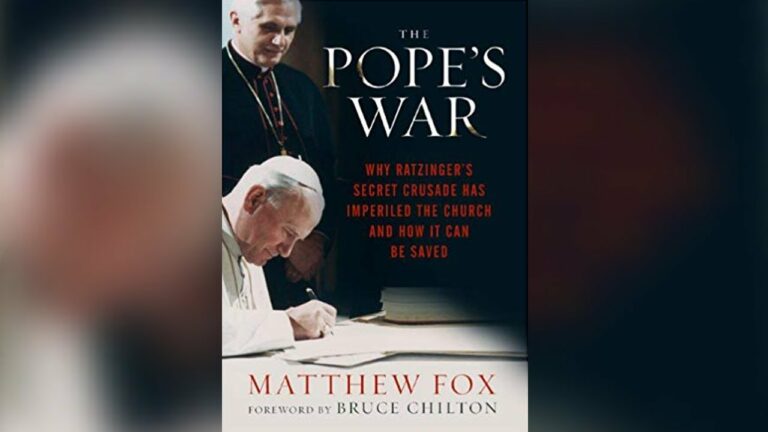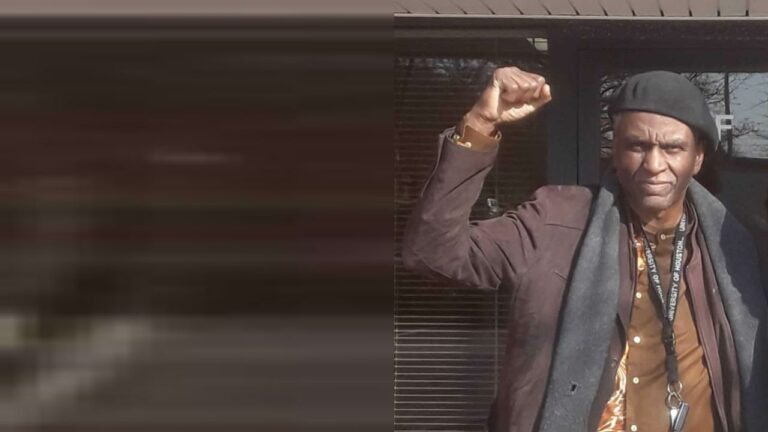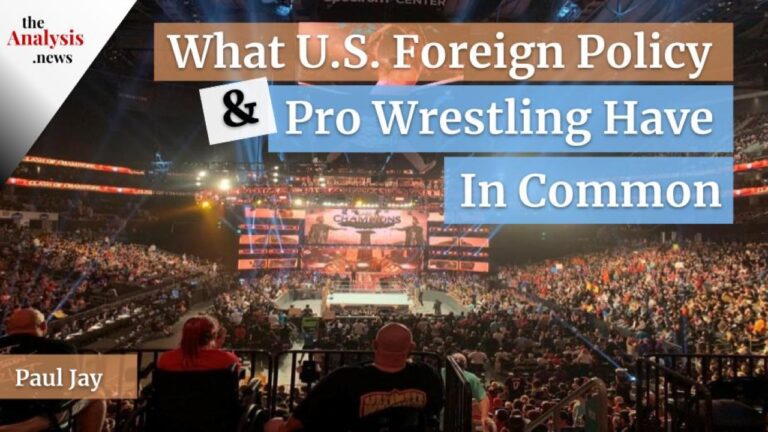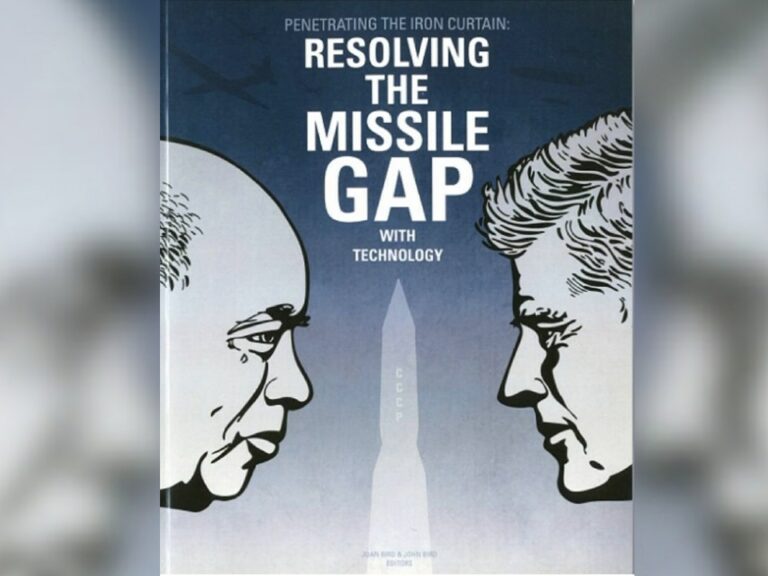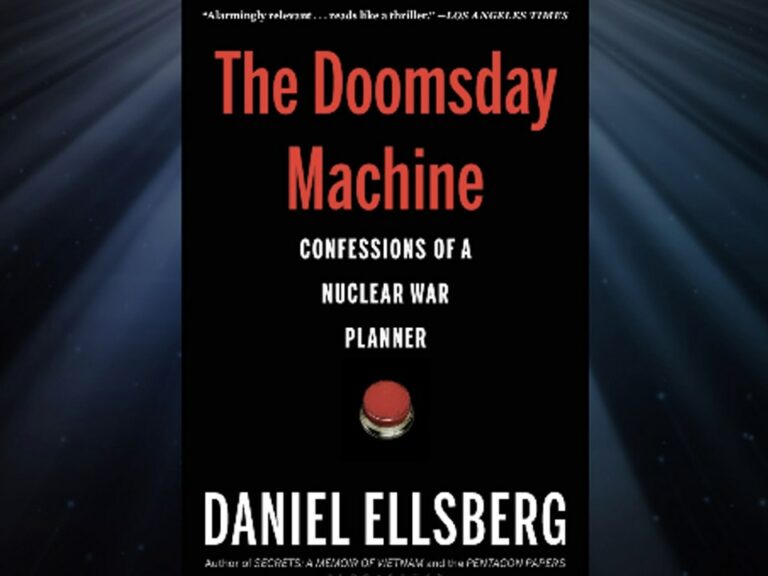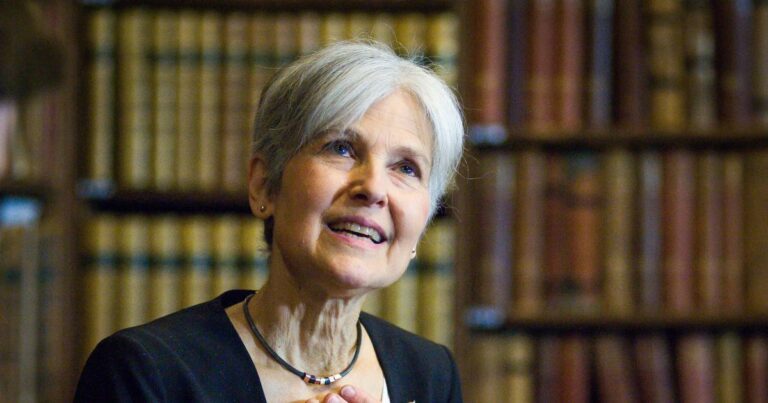Podcast: Play in new window | Download | Embed
Subscribe Apple Podcasts | Spotify | Android | iHeartRadio | Blubrry | Email | TuneIn | Deezer | RSS
Mr. Abunimah says no state exists as an absolute right, but there is a people’s right to self-determination.
This is an episode of Reality Asserts Itself, produced May 15, 2014.
STORY TRANSCRIPT
PAUL JAY, SENIOR EDITOR, TRNN: Welcome back to The Real News Network and welcome back to Reality Asserts Itself.
We’re continuing our series of interviews with Ali Abunimah. He’s the founder/codirector of Electronic Intifada, one of the world’s important sites for news and analysis about Palestine.
Thanks for joining us again.
And as I mentioned before, Ali is also the author of The Battle for Justice in Palestine, a new book, and in 2006 Our Country: A Bold Proposal to End the Israeli-Palestinian Impasse.
So we’re going to pick up the discussion about Ali’s book. And in chapter two, Ali discusses does Israel have a right to exist as a Jewish state. And here’s a quote from that chapter:
States either exist or do not exist, as other states either recognize them or they do not. But no other state has claimed the abstract right to exist. If Israel is indeed a normal state among the nations, as its Zionist founders wished it to be, then it has no greater “right to exist” than East Germany, Czechoslovakia, South Vietnam, or the Soviet Union. All those states dissolved, and there’s no one with any standing to bring a case in any form demanding they be resurrected on any abstract right to exist separate from their legitimate residents’ right to self-determination.
So the right of the Jewish state to exist is usually stated as something based in something–what they would say would be unique, which is the Holocaust, or the genocide against Jews in World War II, that–they would argue, I would say, defenders of the Jewish state, that this isn’t like a Soviet Union or any of these other places; because of this genocide, Jews need this state to defend them because of hundreds and, you know, even thousands of years of discrimination in Europe. So what do you make of that argument? ‘Cause they do see the Israeli state as an exceptional case.
ALI ABUNIMAH, COFOUNDER, ELECTRONIC INTIFADA: Well, I actually discuss all those claims in the book and, I think, address them fairly systematically.
But a basic point is that, of course, historically Zionism began–yes, it began as a response to the systematic persecution that Jews faced in Europe. It was rejected by most Jews at the time, and, in fact, for many decades. But it started long before the Holocaust. I mean, the Holocaust would be a sort of a post hoc justification for Zionism, given that the two are separated by many decades.
But I question the claim that the way for Jews to have security and to feel secure is through an exclusivist state that requires so much violence against the Palestinians. And it required immense violence to create it, because, of course, Palestinians were the majority in the area that became Israel. And it requires immense violence to maintain it, because I think Israel’s struggle over the past few decades has been, really, to conceal from the world the amount of violence that is needed to maintain an exclusivist state in a geographic area that didn’t have a Jewish majority, and today, where Jews are at most 50 percent of the population, if not already a minority.
And so this requires you to think about different ways of organizing life so that you don’t have this constant combat to maintain the supremacy of one group over another.
JAY: Well, just to give the argument, I know people–and, obviously, anyone who watches The Real News–not me, but those that support a Jewish state will give the argument, it could happen again, what happened in Europe. And, actually, you can see the rise of fascism in Europe again in Ukraine and in France, and also in Germany and other places. And this idea that’s fairly deeply rooted because of what happened during World War II, certainly in the Israeli public opinion, to some extent in Jews outside of Israel and North America, that there’s this place of refuge–and there’s certainly this idea that this tiny little state is surrounded by this far, far larger Arab population, and only through having essentially a militarized state could you have a safe haven. I mean, that’s the psyche.
ABUNIMAH: Well, there’s a number of claims there. First of all, you have to examine from a moral and ethical point of view the notion that Jewish Americans or Jewish Canadians should have a spare country as an insurance policy when the creation and maintenance of this spare country comes at a brutal price and brutal suffering of its indigenous people, who have to be expelled, kept as refugees, corralled in ghettos like Gaza or Qalqilya, treated as second-class citizens, and constantly demonized. Is that ethically a price that anyone should be asked to pay as an insurance policy for people living quite comfortably in Montreal or Chicago or other parts of the world? I think that’s questionable.
The other point is that even if one accepts the premise, there’s a basic contradiction in the Israeli narrative, or the Zionist narrative, of Israel as a safe haven and a final refuge for Jews should, you know, things go bad in other parts of the world, and the propaganda message that Israel is under constant threat, constantly beset by enemies, whether it’s Hezbollah in Lebanon or Hamas in Gaza or Iran’s nuclear weapons, and is always on the brink of destruction. I mean, it can’t be both. It can’t be both a safe place and, you know, this dangerous place.
And to the extent that, you know, Israel has become, really, the most dangerous place in the world for Jews, one has to examine what are the dynamics, what are the structures, what are the realities that perpetuate conflict and bloodshed and hostility, and I would argue, and I do argue, that it is the effort to create and maintain an exclusivist state at the expense of the indigenous Palestinian population, a colonial state, and therefore the way to undo this hostility is through decolonization, is through going forward to a situation and, in a sense, returning to a situation where Jews and Palestinians can be part of the same entity, and to do away with this notion of Palestinians as a demographic threat, which is how the Israeli mainstream talks about them in which I understand to be really racist language. But it’s how even many liberal supporters of a Jewish state talk, you know, that we have to maintain a Jewish majority.
What’s the price of maintaining it? How do you do that? What remedies do you have if Palestinians have too many of the wrong kind of baby? It creates an ugliness and a violence that I think many liberal Jewish supporters of Israel in this country and around the world have refused to recon with. And they think that this can all just be wished away by continuously repeating these slogans about two states living side by side in peace and never having to reckon with the reality of what ethnic segregation means in Palestine. It means ethnic cleansing. It means violence. It means racist laws. It means constantly viewing Palestinians as a presence that pollutes the land.
JAY: The idea of the need for a Jewish state, not a secular state, not a modern democratic state–as many people say, you can’t have a modern democratic state and an ethnic-based state. Now, Israel’s not the only one. You have the Islamic Republic of Iran and you have Pakistan and other countries that consider themselves religious-based, and it amounts to a large extent ethnic-based–certainly in Iran it does. I think the Iranians see it as much a Persian state as they do an Islamic state, and their laws are like that, in the sense that if you’re of any kind of Iranian descent, if you have Persian blood in you, if you are Canadian and go back to Iran, they will consider you Iranian one way or the other.
ABUNIMAH: But that’s not–you know, I always find it interesting when people defend Israel based on comparisons with countries like Pakistan or Saudi Arabia or Iran as if those are models that anyone, you know, aspires to or defends in terms of–. You know, Israel compares itself to Western liberal democracies. It doesn’t say, we’re like Iran or we’re like Saudi Arabia.
But, you know, the claim that Israel is–you know, that, for example, the law of return that you’re alluding to is just like a law that says that somebody of Irish descent can go back and get an Irish passport is a fallacy that I take on in the book. The example of Ireland comes up all the time. Ireland has a law that says, if you have one grandparent born on the island of Ireland, then you can go and claim Irish citizenship. And some people say, well, this justifies things like Israel’s law of return for Jews. No, it’s totally different, because the Irish law doesn’t contain any provision that you have to be Catholic or you have to be Celtic or some other ethnoreligious criteria. If you’re Protestant from the North, if your grandparent was Protestant from the North, if your grandparent was, you know, from any kind of background, you qualify, whereas the Israeli law is designed to give privileges to people Israel identifies as Jewish, wherever they are in the world, and specifically to deny them to Palestinians who are born in the country or whose parents or grandparents are born there. So, you know, I’m not here to defend other states and to say that other states are our models.
JAY: No, I was actually going to make a point that the Israeli state is as backward as these other states. But what I was going to go on to say is that as backward as it is, as nondemocratic as it is, it does seem now very, very deeply rooted in the Israeli-Jewish psyche that this whole narrative of what Israel is needs to be a Jewish state. And what I’m getting at is, even though I don’t think that meets any modern definition of what a democracy is, is it not a fact that whatever is going to be worked out in this kind of next sort of historical phase in terms of Palestinian-Israeli relations, that it somehow is going to have to be accommodated? Or do you think it’s possible for Israeli Jews to get over that? ‘Cause right now it doesn’t look like it.
ABUNIMAH: Well, I agree with you absolutely that right now it doesn’t look like it. But the point I make in the book is that in analogous situations it never looks like it. I mean, the argument I make in the book is that whites in South Africa were absolutely resistant to the notion of a one person, one vote system. If you look at the surveys of white South Africans in the 1980s and into the early 1990s–remember, this month, April 1994, April 2014, it’s 20 years since the first democratic election in South Africa. But up until 1990, ’91, ’92, the vast majority of white South Africans were saying, well, we’ll accept some kind of federation or some kind of group accommodation, but we absolutely will not accept a one person, one vote system, because that will be the end of us. And it was consistent. The same in Northern Ireland.
And what I trace in the book is that actually these positions that seem pervasive and entrenched among the ruling group actually can dissolve fairly quickly and be replaced by new narratives that are much more conducive to a more peaceful and just future. In South Africa, whites were able to embrace the idea of the Rainbow Nation. We can talk–and I do in the book–about the reality versus the vision, but they no longer said, we must have apartheid or we’ll be thrown into the sea. That changed. And in Northern Ireland, they traced a similar change in the thinking of Ian Paisley, who is the most sectarian, most anti-nationalist, anti-Catholic leader, demagogue, who opposed every accommodation and then switched 180 degrees and started talking about a shared past and a shared future. So those changes can come very rapidly.
JAY: Okay. In the next segment of our interview, we’re going to talk about what kind of changes might have to take place amongst the Palestinians. I was in Ramallah a few years ago and I was kind of taken aback at the number of beautiful condos and villas I saw there. The issue of a resolution to the Palestinian-Israeli struggle/conflict is also an issue of the introduction of neoliberalism and modern forms of capitalism in Palestine itself. So we’re going to talk about that, and then we’re going to move on to what solutions might look like on Reality Asserts Itself on The Real News Network.

